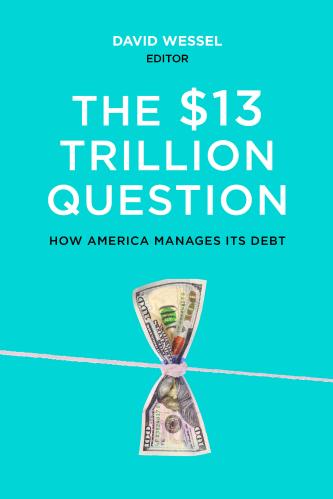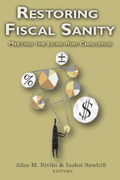Studies in this week’s Hutchins Roundup find that including free media into GDP does not ameliorate sluggish productivity growth, the Fed could maintain its large balance sheet indefinitely and use it to promote financial stability, and more.
Accounting for free media in the measurement of GDP has no effect on productivity growth
Leonard Nakamura of the Philadelphia Fed and Jon Samuels and Rachel Soloveichik of the U.S. Bureau of Economic Analysis build an experimental version of gross domestic product that includes free-to-consumer, advertising-support content, such as Google Maps, as final output or as business input, depending on how it is used. Such an approach doesn’t find significantly more growth in output or productivity over the past several decades than current official estimates, they find. In part, this is because advertising-supported media is too small — about 0.5% of nominal GDP — to matter much to the aggregates.
The Fed should maintain its large balance sheet indefinitely and use it as a financial stability tool
Robin Greenwood, Samuel Hanson, and Jeremy Stein of Harvard argue that the Fed should use its large balance sheet as a tool for promoting financial stability even when the economy moves away from the zero lower bound. Specifically, by expanding its supply of safe short-term government liabilities, largely reverse repurchase agreements, the Fed could reduce the incentives for private participants to create similar securities, adding to the risks of financial instability. They contend that the use of this tool would not interfere with the Fed’s ability to fulfill its dual mandate of full employment and price stability.
Merit-based financial aid has important implications for long-run student outcomes
Using novel data on the recipients of a West Virginia merit scholarship program, Judith Scott-Clayton of Columbia and Basit Zafar of the New York Fed conclude that scholarship recipients complete their bachelor’s degrees sooner and are more likely to earn a graduate degree, own a home, and live in a higher-income neighborhood in the decade following graduation than similar students who did not receive scholarships. The recipients are also less likely to have adverse credit outcomes such as delinquent debt and accounts in collection.
Chart of the week: Public confidence in the Fed isn’t what it used to be

Source: Gallup Poll via WSJ.com
Quote of the week: “[I]n light of the continued solid performance of the labor market and our outlook for economic activity and inflation, I believe the case for an increase in the federal funds rate has strengthened in recent months,” says Fed Chair Janet Yellen
“Of course, our decisions always depend on the degree to which incoming data continues to confirm the Committee’s outlook. And, as ever, the economic outlook is uncertain, and so monetary policy is not on a preset course.”
— Janet Yellen, Chair, Federal Reserve
The Brookings Institution is committed to quality, independence, and impact.
We are supported by a diverse array of funders. In line with our values and policies, each Brookings publication represents the sole views of its author(s).







Commentary
Hutchins Roundup: Productivity measurement, financial stability, and more
Thursday, September 1, 2016